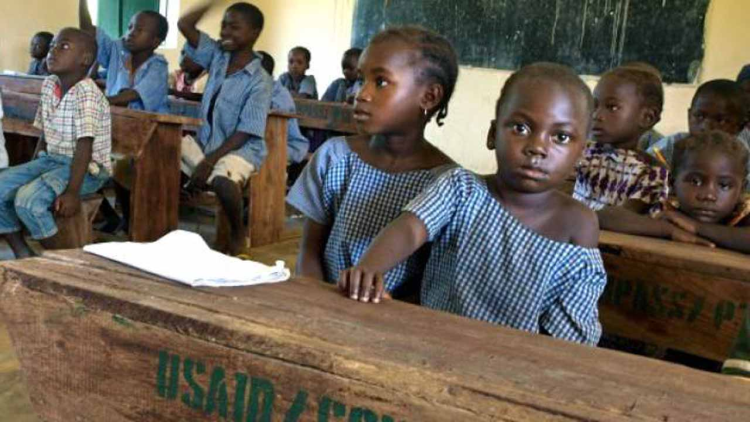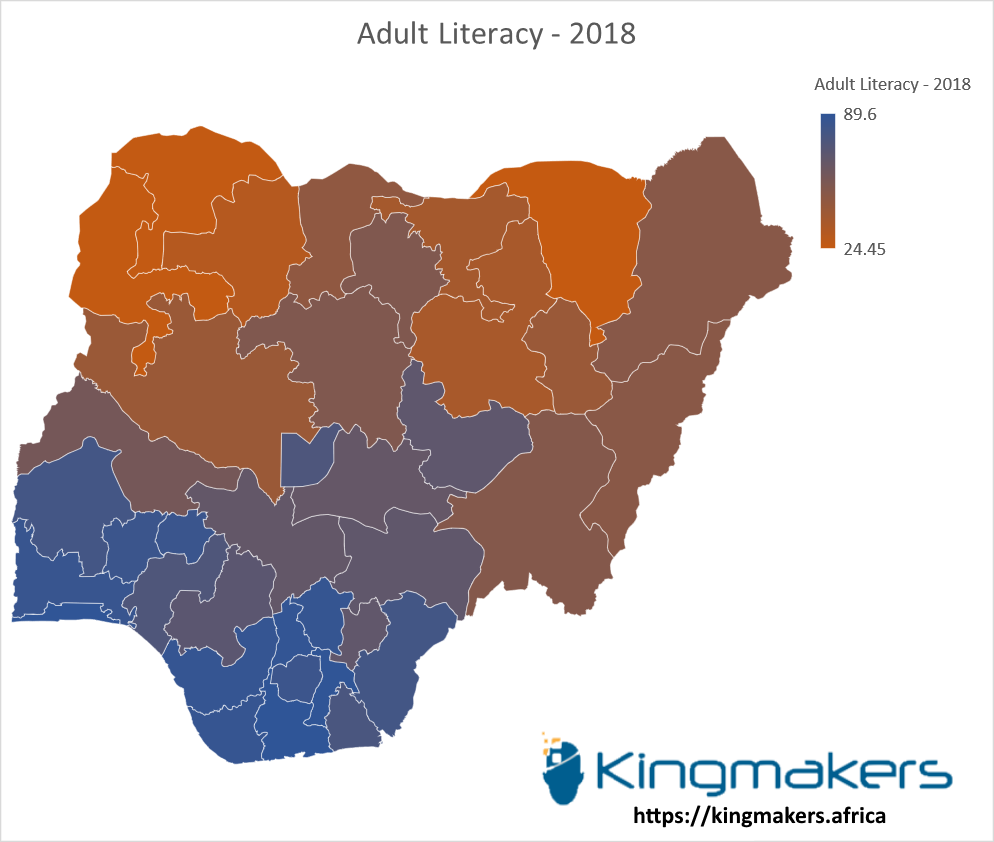
The 2021 Nigeria MICS Survey revealed significant disparities in literacy and numeracy skills across regions and states. While some areas perform well, others struggle with low proficiency levels....
Read More

Nigeria's senior secondary school completion rates show significant regional and state disparities, with the South outperforming the North. Investment in education is essential for sustainable economic growth....
Read More

Explore the report on the impact of early stimulation and responsive care on Nigerian children's development, highlighting disparities across regions and the need for investments in early childhood care and education....
Read More

The literacy rate in Nigeria based on the 2021 Multiple Indicator Cluster Survey (MICS) shows that the national average is 48.9%, with women's literacy at 42.5% and men's literacy at 55.2%. The highest literacy rate is in the South East (73.8%) and the lowest is in Bauchi (18.3%)....
Read More

In Nigeria, there seems to be a wide disparity in educational attainment levels between the northern and southern part of the country....
Read More

According to Unesco, adult illiteracy is defined as the percentage of the population aged 15 ye...
Read More